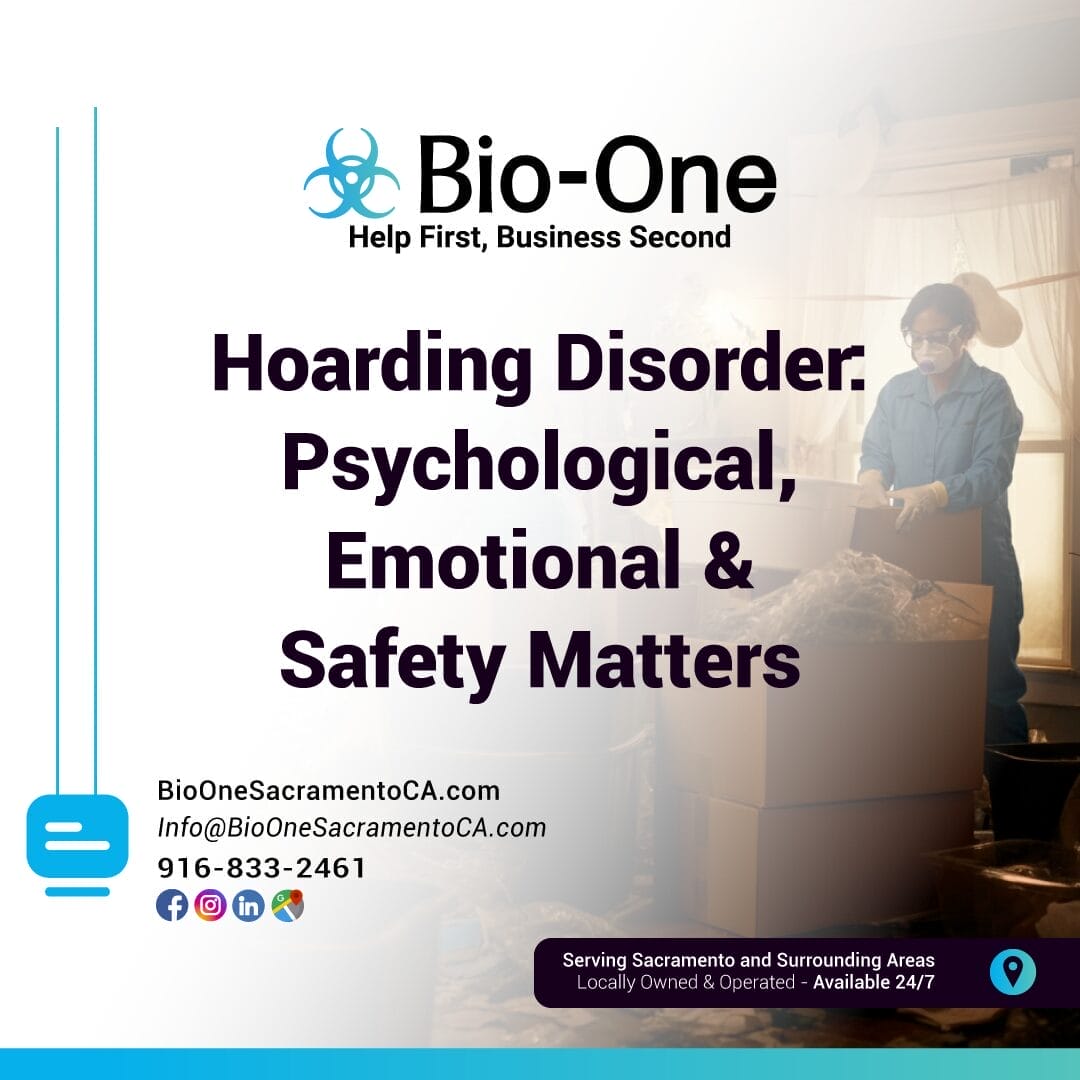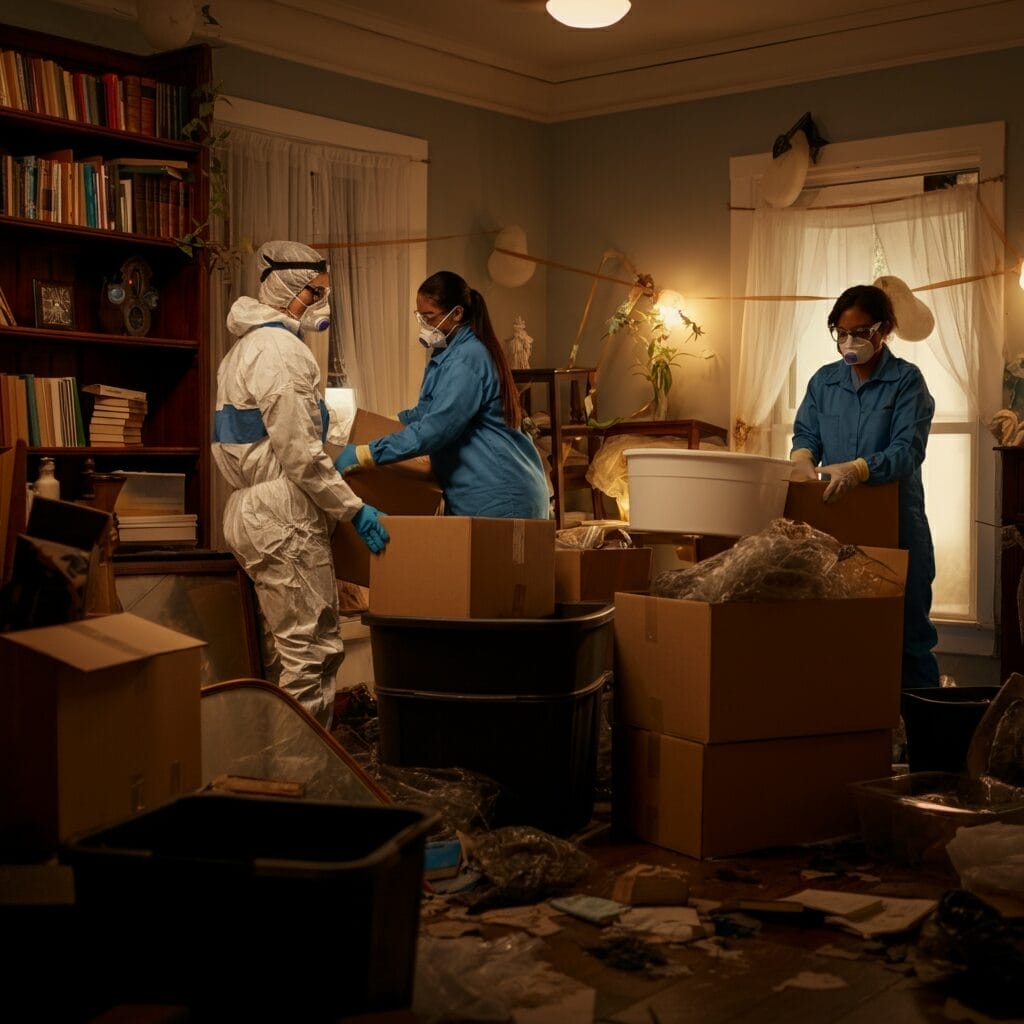
Hoarding disorder is a complex and often misunderstood condition that goes far beyond clutter or disorganization. It’s characterized by the excessive accumulation of items, difficulty discarding possessions, and significant distress or impairment as a result. For families and friends of individuals who struggle with hoarding, it can be a heartbreaking experience, even more so if they don’t know how to approach the problem effectively.
Cleaning up a hoarded home is no simple matter. Beyond the physical mess lies a web of psychological, emotional, and even safety concerns. This blog will explore the deeper aspects of hoarding, outline why safety and compassion must go hand in hand when addressing it, and provide actionable guidance on helping a loved one tackle the issue. It will also offer insight into why professional cleanup services play an essential role in achieving a resolution that’s both safe and respectful.
The Psychology of Hoarding
Hoarding is often linked to underlying mental health challenges, which makes it crucial to approach the issue with understanding and care. According to the American Psychiatric Association, hoarding disorder is often accompanied by other conditions such as anxiety, depression, or obsessive-compulsive disorder (OCD). Individuals with hoarding disorder may attach emotional value to their possessions in ways that don’t seem logical to others. For example, they might believe that these items provide a sense of safety, symbolize important memories, or could “someday” be useful.
For many, the very idea of discarding items triggers intense emotional distress. This fear often leads to avoidance, creating a cycle where the hoard only continues to grow. What might look like stubbornness or neglect to an outsider is often the result of deep emotional pain and a struggle to cope with overwhelming thoughts.
The first step in addressing a hoarding situation is understanding that the behavior isn’t laziness or defiance, but a sign of a serious underlying issue. Compassion goes a long way in helping someone feel supported rather than criticized, which is critical for encouraging change.
The Hidden Dangers of Hoarding
Aside from the emotional and psychological toll, hoarding poses serious health and safety risks both to the person struggling with the disorder and to those around them. These risks include:
1. Health Risks
Hoarded homes often become breeding grounds for mold, dust, and pest infestations, contributing to poor air quality and spreading allergens. The presence of decaying food, animal waste, or unsanitary conditions can also expose inhabitants to dangerous pathogens. For those with preexisting health conditions like asthma, the environment can be especially hazardous.
2. Fire Hazards
Excessive clutter increases the risk of fires. With piles of combustible material like paper and fabric blocking pathways, escape routes in the event of an emergency can be obstructed. Firefighters often face significant challenges navigating hoarded homes, putting everyone’s safety at greater risk.
3. Structural Damage
The sheer weight of accumulated items can strain floors and walls, causing long-term structural damage to a home. Over time, this might result in costly repairs or even make the property unsafe to inhabit.
4. Falls and Injuries
Narrow pathways, unstable piles, and the lack of clear walking space heighten the risk of falls and physical injuries. Seniors living in hoarded homes are especially vulnerable to these hazards.
Compassionate Tips for Helping a Loved One
If you have a family member or close friend struggling with hoarding, your first instinct might be to clear the clutter yourself or confront them about the mess. However, an unsympathetic or aggressive approach can backfire, leading to increased resistance and emotional harm. Here are some compassionate steps you can take:

1. Educate Yourself
Understanding hoarding disorder can help you empathize with your loved one and recognize the challenges they face. Learning more about their emotional attachment to items can guide you in responding with patience.
2. Start the Conversation Gently
Approach the topic without judgment. Use non-confrontational language and express concern for their well-being. For example, you might say, “I’ve noticed you have a lot of things in your home, and I’m worried about your safety.”
3. Encourage Professional Help
Suggest talking to a therapist or counselor who specializes in hoarding or mental health issues. Recovery from hoarding often requires professional guidance to address the underlying emotions driving the behavior.
4. Set Small, Achievable Goals
Rather than attempting to clear out an entire home in one day, encourage your loved one to focus on manageable tasks. This could be as simple as clearing off a single table or sorting through a small box of items.
5. Avoid Taking Over
Resist the urge to throw items away on their behalf. This can feel like a violation of trust and may cause them to retreat further into their hoarding behavior. Any cleanup efforts should be done with their input and cooperation.
6. Be Patient
Change doesn’t happen overnight. Progress may be slow, and there will likely be setbacks along the way. Offer ongoing support and reassurance that they’re not alone in dealing with their challenges.
When to Call in Professionals
Hoarding cleanup can become overwhelming, especially in severe cases where health and safety risks are high. Professional cleanup services are often the most effective way to restore a hoarded home while minimizing emotional distress for the individual and their family.
What Professionals Offer:
- Safety Expertise: Trained technicians are equipped with the tools and knowledge to safely handle hazardous materials, including biohazards such as animal waste, mold, and harmful bacteria.
- Discretion and Compassion: Reputable cleanup services understand the sensitive nature of hoarding and take a nonjudgmental approach to create a trusting environment.
- Thorough Cleaning: Beyond decluttering, professionals sanitize spaces to eliminate health risks and prevent further damage.
- Efficient Solutions: What might take weeks for a family to clear on their own can often be completed in a matter of days with professional help.
Partnering with a company that specializes in hoarding cleanup can bring peace of mind during an emotional and physically demanding process. It allows families to focus on supporting their loved one while professionals handle the logistics of restoring a safe living environment.
Final Thoughts
If you or someone you care about needs assistance, consider reaching out to trained professionals who can help restore both the physical and emotional well-being of everyone involved. Together, we can handle the toughest challenges with respect and care.
For more insight into hoarding behaviors, learn about the psychological causes of hoarding and how they manifest. To understand how to approach and support a loved one, check this guide on helping someone with hoarding disorder. These resources provide valuable tools and knowledge to help manage and overcome hoarding challenges effectively.


